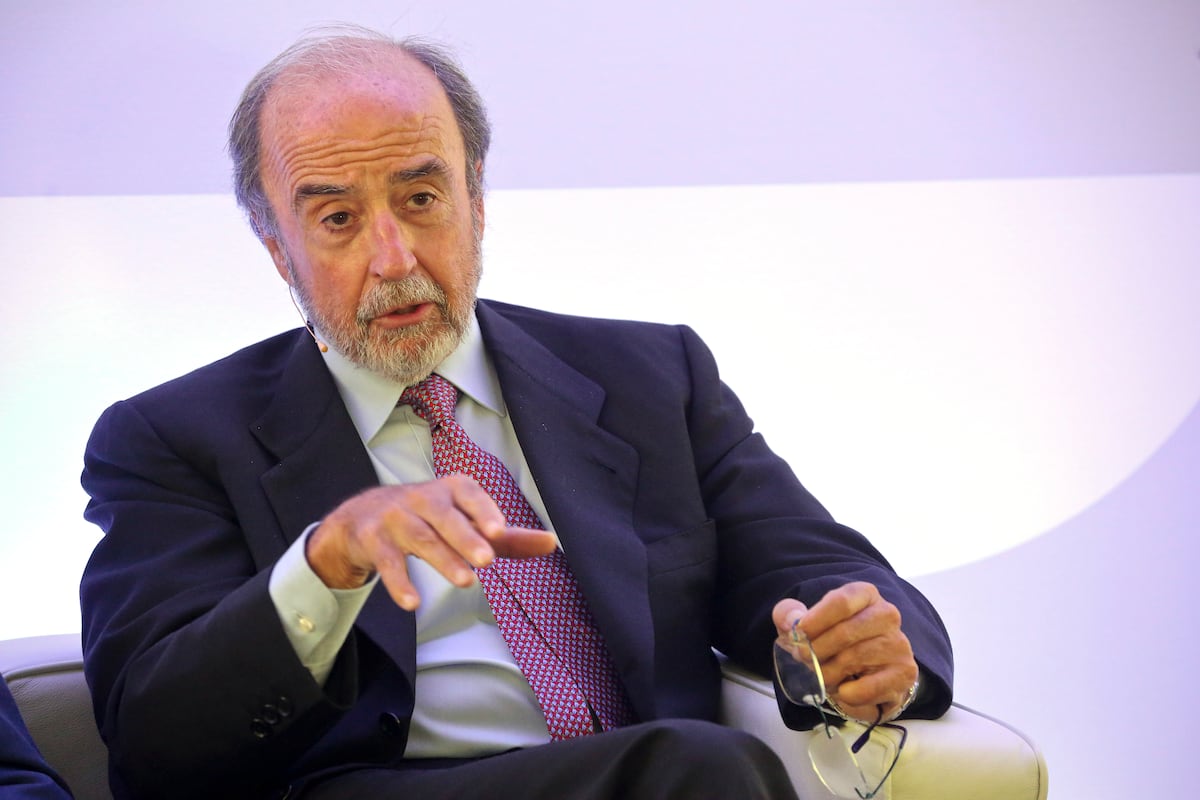The Supreme Court has settled the judicial battle between Bankinter and the Treasury regarding the tax deductibility of the compensation it paid to Juan Arena for his dismissal as president in 2007. The court has not given rise to the entity’s appeal against the ruling. of the Contentious Chamber of the National Court, which in 2021 considered that the payment of 14 million, in addition to stock options, a pension and other conditions, was a “remunerative donation” that was granted voluntarily.
“The criterion of the appealed sentence must be considered correct,” states the decision of the Supreme Court of April 8, but published this Saturday, and agrees with the National Court that the evidence presented by the entity is not sufficient to demonstrate that the expense was appropriately related to the generation of income or results of the company. “It is not inappropriate to classify as liberality the disbursement of an amount without any obligatory basis in the provisions of the Statutes or in the contract between the entity and the administrator who has been the beneficiary of such payments,” states the high court.
The events date back more than 17 years. On April 19, 2007, the entity made public the departure of Arena and his replacement by Pedro Guerrero, who left Bankinter only in March of this year. As stated in the 2021 ruling, the executive’s departure negotiated before his departure included, in addition to the payment of almost 14 million euros in a single payment, the indefinite maintenance of health insurance, as well as other services such as security, secretarial service and the maintenance, repair and replacement of a vehicle for personal use. In 2012, the Tax Agency began an inspection of the firm’s accounts that shed light on the compensation to the former president.
Bankinter stated in 2021 that these good conditions were agreed upon “in exchange for providing strategic advice, as well as not competing with said entity within a period of two years, and also in compensation for the services provided.” However, the Treasury questioned whether these services “were carried out, in addition to being excessively burdensome in relation to the duties derived from the prohibition of competition of any other manager.”
After the entity appealed the ruling to the Supreme Court in October 2022, the State reiterated that this compensation, which Bankinter intended to be deductible, “cannot be because it was contrary to commercial legislation”, in addition to not being provided for in the Statutes or in any contract. In particular, the opposition brief reiterates that Arena’s exit package was decided “unilaterally” by the Board of Directors of Bankinter. The Supreme Court highlights that the ruling handed down by the Court rejects “the deductibility of remuneration, alleging a lack of certainty in its determination and understands that it is not possible to admit tacit approval by the General Meeting through the mere approval of the annual accounts.”
The Supreme Court’s brief once again insists that “there were no shield contracts at Bankinter in that period and they certainly did not exist” with respect to Arena. Regarding this information, which the judges highlight was not appealed or questioned by the entity, it is stated that Bankinter “had no legal, statutory or contractual obligation to pay compensation for the termination, by mutual agreement, of the contractual relationships.” This leads the Supreme Court to conclude that “in no way is it about the resolution of a certain contractual relationship” and that the exit package arises as a “negotiated condition” to resign from his position as president and advisor. In particular, the ruling indicates that Bankinter tried to argue that the compensation responds to a business purpose that “results in its own results.” However, the Supreme Court highlights that the Board of Directors does not explain the reason for recognizing “compensation of such an amount.”
Juan Arena developed his entire professional life, since 1970, in the Bankinter Group, of which he has successively been general director since 1985, director since 1986, CEO since 1993 and president for five years between 2002 and 2007.
